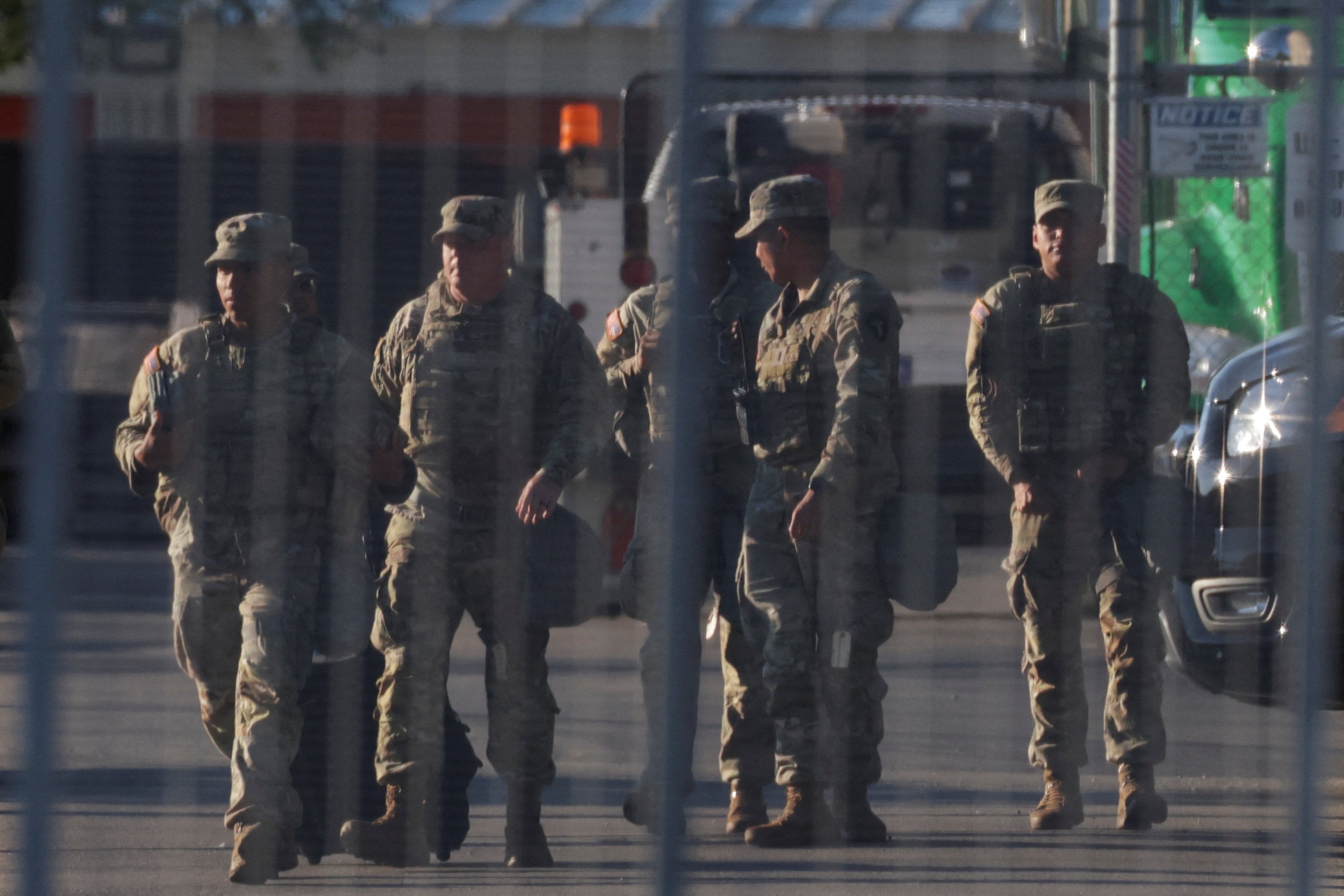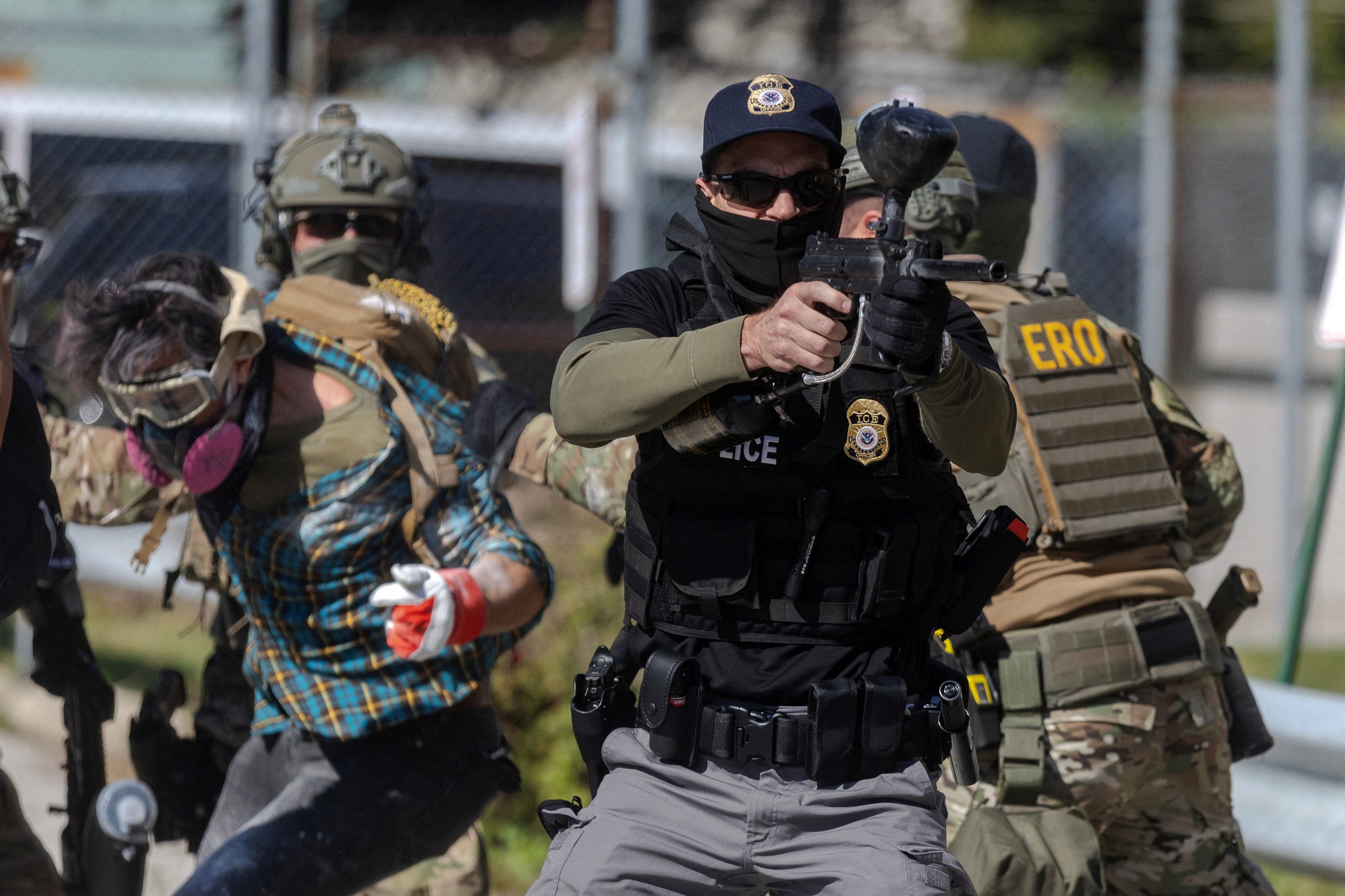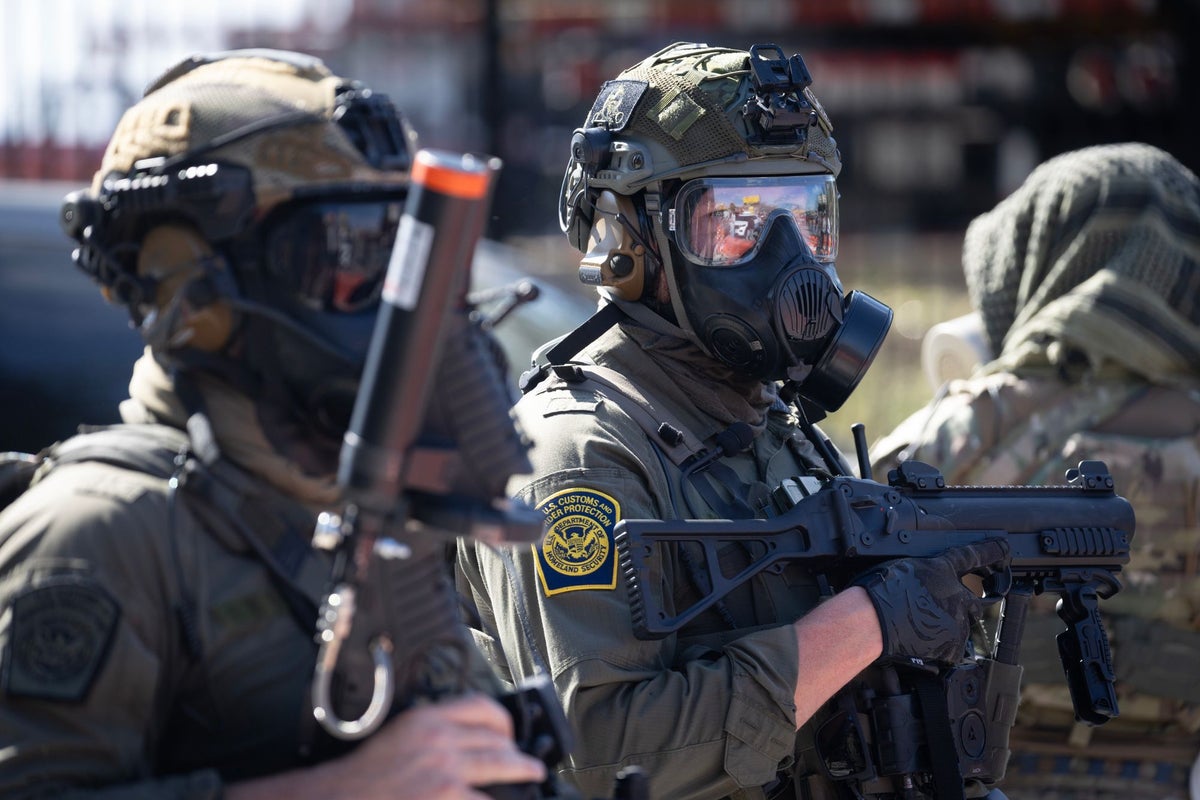Federal agents are temporarily blocked from firing rubber bullets, tear gas and other chemical munitions at protesters and journalists in Chicago following a lawsuit from press associations and faith leaders accusing Donald Trump’s administration of “a pattern of extreme brutality.”
A restraining order from District Judge Sara Ellis blocks federal officers from using riot control weapons and other force against clearly identified members of the press as well as protesters and faith leaders who aren’t posing any immediate threat to law enforcement.
Ellis also specifically blocked officers from firing munitions that “strike the head, neck, groin, spine, or female breast, or striking any person with a vehicle,” as well as “pulling or shoving a person to the ground, tackling, or body slamming” demonstrators who aren’t harming others.
The order follows testimony from reporters and demonstrators that federal agents “indiscriminately” fired on protesters, including an incident captured on video where officers defending an Immigration and Customs Enforcement facility struck the head of a Presbyterian minister with pepper bullets that knocked him to the ground.
Thursday’s order arrived as another federal judge in Illinois considers whether to ban the president’s deployment of National Guard troops to the state, as the administration surges federal agents and sends the military into other Democratic-led states and cities after a wave of protests against Trump’s anti-immigration agenda.

Illinois District Judge April Perry is considering a lawsuit from state and city officials who accused the administration of relying on “flimsy pretext” to send troops into Chicago, where protests erupted after federal agents “repeatedly shot chemical munitions at groups that included media and legal observers” while “dozens of masked, armed federal agents … paraded through downtown Chicago in a show of force and control.”
Last week, Oregon officials similarly sued the administration, arguing that the president’s threats to send in the troops are “wholly pretextual” and designed to stir up unrest to justify boots on the ground.
On Sunday, a Trump-appointed judge argued that relatively small protests in Portland did not justify the use of federalized forces that imperil Oregon’s sovereignty
But a three-judge federal appeals court panel – including two judges appointed by Trump — appeared prepared Thursday to strike down the order, teeing up a potential Supreme Court battle over the president’s authority to federalize troops.
“These are violent people,” Department of Justice attorney Eric MacArthur told the panel Thursday. “This is unsustainable … The president is entitled to say ‘enough is enough’ and bring in the National Guard.”

The lawsuit from Chicago reporters, protesters and faith leaders accuses the Trump administration of unconstitutional threats to their First Amendment rights and religious freedoms with so-called less lethal weapons causing “serious injuries,” while “some are being randomly singled out for arrest” and detained inside an ICE facility where they “are detained incommunicado for hours.”
“No legitimate purpose exists for this brutality or for these arrests,” lawyers for the plaintiffs wrote this week. “The officers are not physically threatened. No government property is threatened. Defendants are acting to intimidate and silence the press and civilians engaged in protected First Amendment activities.”

Last month, the Rev. David Black — dressed in black and wearing a clerical collar while standing with demonstrators — was hit with chemical agents while praying in front of the ICE facility in Broadview, a Chicago suburb that has emerged as a flashpoint for protests against the administration.
The order from Judge Ellis prevents federal agents from “using any riot control weapon” without “at least two separate warnings.”
Her order also blocks officers from “seizing or arresting any non-violent protester who is not resisting a lawful crowd dispersal order, unless there is specific probable cause to believe that the individual has committed a crime” for which an arrest is warranted.
All federal agents must also have “visible identification” that is “affixed to their uniforms or helmets and prominently displayed, including when wearing riot gear,” unless they are undercover.
Ellis directed Homeland Security officials to “widely disseminate” her order to federal agents.
In a statement to The Independent, Homeland Security assistant secretary Tricia McLaughlin said the agency “is taking reasonable and constitutional measures to uphold the rule of law and protect our officers.”
“We remind members of the media to exercise caution as they cover these violent riots and remind journalists that covering unlawful activities in the field does come with risks — though our officers take every reasonable precaution to mitigate those dangers to those exercising protected First Amendment rights,” she added.
“Anyone who actively obstructs law enforcement in the performance of their sworn duties will face consequences, which could include arrest,” she said.



.jpg?trim=0,0,0,0&width=1200&height=800&crop=1200:800)
